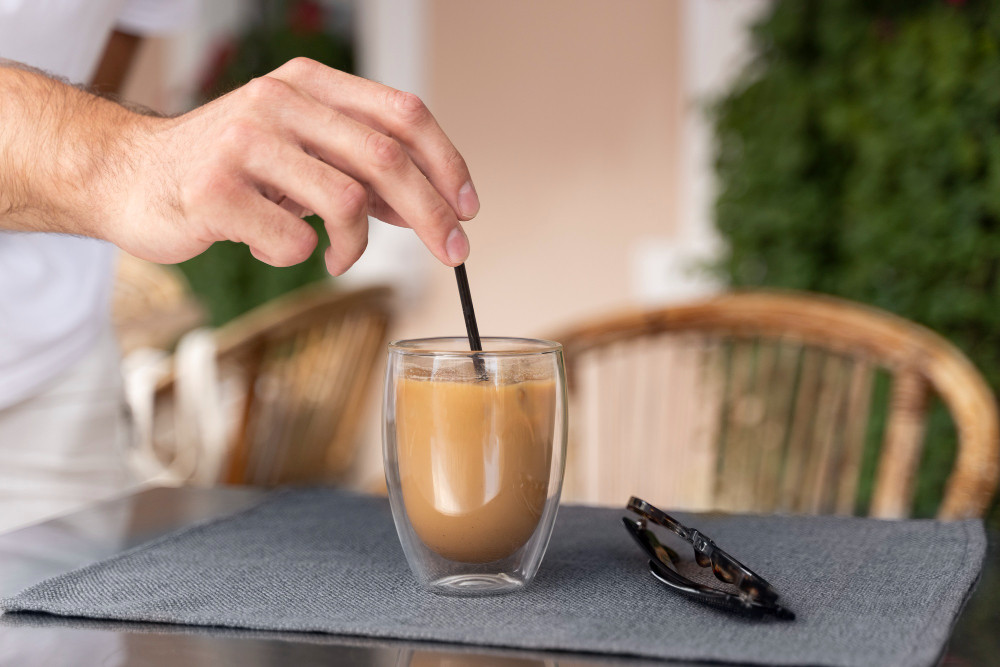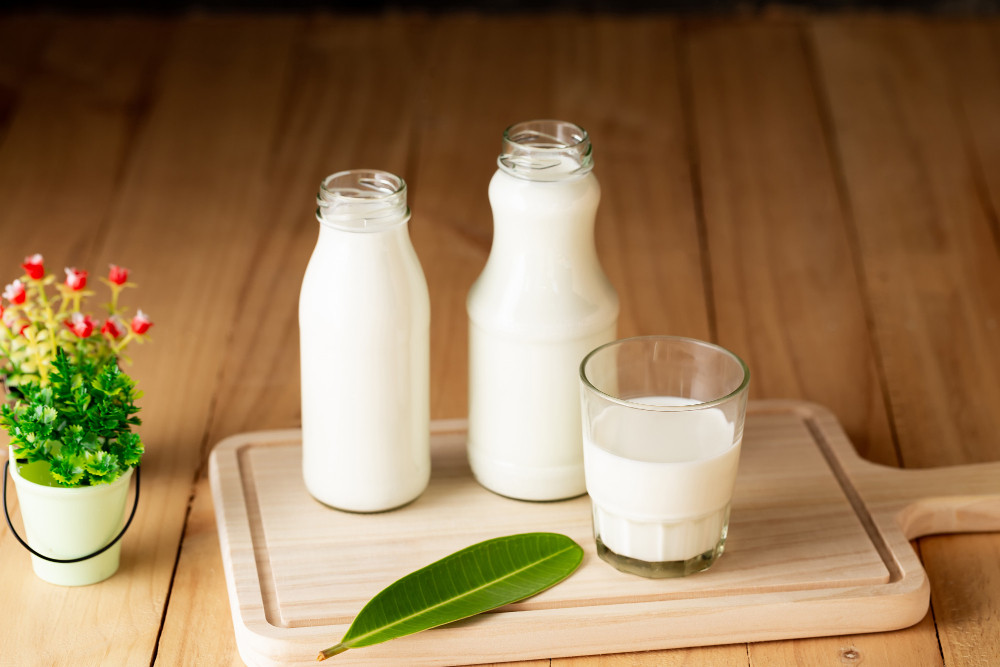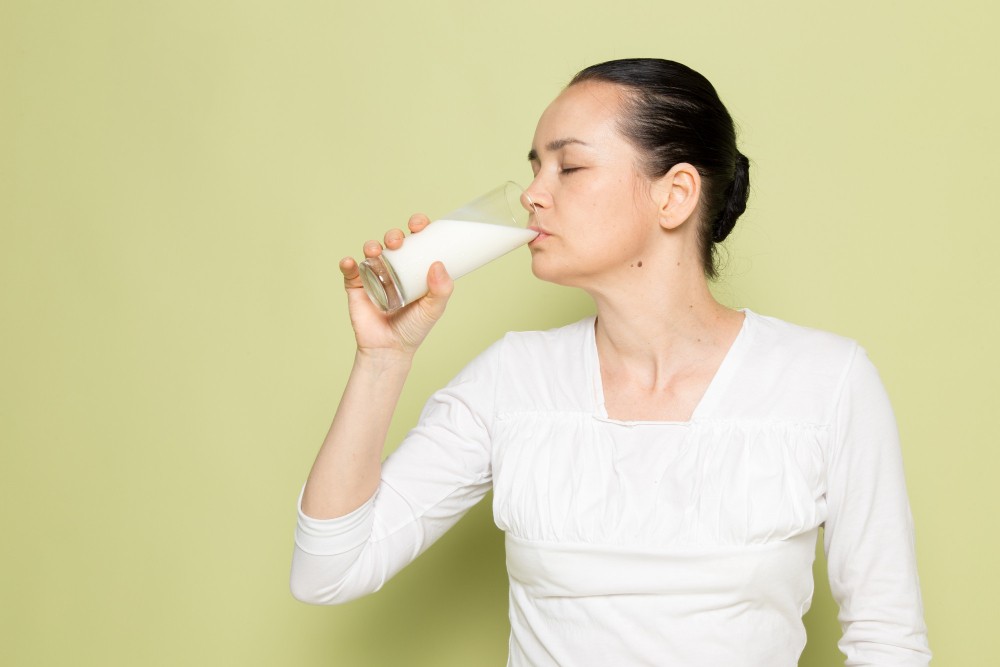Teh dan susu merupakan minuman yang banyak digemari di seluruh dunia. Mencampur teh dan susu atau yang di Malaysia dikenal sebagai minuman teh tarik ternyata bukan hanya lezat, namun juga memiliki sejumlah manfaat bagi kesehatan. Namun sebaiknya batasi konsumsinya agar tidak menimbulkan efek samping.
Manfaat Mencampur Minuman Teh dan Susu
Bagi warga Asia, minuman teh telah menjadi minuman yang populer sejak ratusan tahun silam. Minuman ini banyak dijumpai terutama di daerah tropis dan sub-tropis dan memiliki beragam varietas yang masing-masing memiliki cita rasa tersendiri.
Begitu pula dengan susu, minuman ini banyak digemari berbagai kalangan baik usia anak-anak dan dewasa. Namun sebagian orang menghindari minum susu terutama susu sapi karena memiliki intoleransi laktosa atau alergi susu sapi.
Teh dikenal sebagai minuman yang mengandung antioksidan tinggi sedangkan susu adalah minuman yang kaya nutrisi. Anda bisa mengkreasikan minuman teh, susu dengan rempah lainnya untuk menambah rasa dan nutrisi. Beberapa orang juga memilih mencampur minuman teh dengan susu karena dipercaya memiliki nutrisi tinggi.
Menambahkan susu ke dalam teh bukan hanya memperkaya rasa pada minuman namun juga dapat mengurangi rasa getir dan pahit dari teh.
Dilansir dari Medicine Net, berikut ini manfaat mencampur minuman teh dan susu:
Menjaga kesehatan tulang dan otot
Teh adalah minuman yang kaya akan antioksidan sementara susu merupakan minuman yang kaya akan kalsium. Mencampurkan keduanya memberi Anda nutrisi yang diperlukan tubuh seperti kalsium, vitamin D dan B12 yang baik untuk kesehatan tulang dan otot.
Sumber energi yang baik
Minum segelas susu dan teh dapat memberi Anda cukup energi untuk beraktivitas sehari-hari. Dalam secangkir susu mengandung 146 kalori, protein 8 gram, lemak 8 gram, serta kalsium, vitamin D, vitamin B12, B2, fosfor dan selenium. Membuatnya menjadi minuman yang sehat dan bernutrisi untuk mendukung aktivitas Anda.
Baca Juga: Benarkah Minum Teh Dapat Menyebabkan Dehidrasi?
Meningkatkan kesehatan kulit
Mengonsumsi susu atau susu rendah lemak dalam jumlah sedang dapat membantu menjaga kesehatan kulit. Susu mengandung lemak esensial dan antioksidan yang ada di dalam teh dapat menutrisi kulit sehingga membantu mencegah penuaan dini.
Meredakan stres
Teh susu memiliki efek antidepresan dari kandungan triptofan yang membantu memperbaiki suasana hati sehingga mengurangi stres. Namun waspada dengan kandungan kafein pada teh susu karena dapat memicu gangguan kecemasan.
Dalam mencampur teh dan susu, jenis teh dan susu yang Anda gunakan juga memengaruhi kandungan nutrisi serta manfaat dari minuman tersebut.
Minuman teh hijau mengandung flavonoid, antioksidan yang juga banyak terdapat pada teh hitam. Anda bisa menggunakan teh hijau atau teh hitam untuk mendapatkan manfaat antioksidan dari teh. Namun rasa kedua jenis teh tersebut cenderung lebih pahit dari teh pada umumnya.
Sedangkan susu, Anda bisa memilih susu rendah lemak untuk menghindari penumpukan kalori. Anda juga bisa mengganti susu sapi dengan susu nabati yang memiliki kandungan lemak lebih sedikit. Namun mengganti susu sapi dengan susu nabati berarti asupan kalsium pada susu juga menjadi lebih rendah.
Baca Juga: Rekomendasi Susu Nabati Sebagai Pengganti Susu Sapi
Efek Samping Mencampur Minuman Teh dan Susu
Meski memiliki manfaat, namun mencampur minuman teh dan susu juga dapat menimbulkan efek samping. Beberapa efek samping yang dapat timbul dari mengonsumsi teh yang dicampur susu antara lain:
- Gangguan pencernaan seperti kembung dan konstipasi
- Penambahan berat badan
- Gangguan kecemasan
- Sulit tidur
- Mual, muntah
- Heartburn
Mencapur minuman teh dan susu selain memberi rasa yang lezat namun juga memiliki berbagai manfaat bagi kesehatan. Namun jika Anda mengonsumsinya dengan gula yang tinggi untuk menghilangkan rasa pahit pada teh maka hal ini berisiko menyebabkan kegemukan. Sebaiknya batasi konsumsi minuman teh dan susu agar tidak mengalami efek samping yang tidak diinginkan.
Jika Anda merasakan gejala efek samping akibat mengonsumsi teh susu, segere berkonsultasi ke dokter. Anda juga dapat memanfaatkan fitur konsultasi bersama dokter pada aplikasi Ai Care.
Mau tahu informasi seputar nutrisi, makanan dan tips diet lainnya? Cek di sini, ya!
- dr Nadia Opmalina
Streit, L. (2019). What Are the Benefits of Drinking Tea with Milk?. Available from: https://www.healthline.com/nutrition/the-benefits-of-tea-with-milk
Spandana, K. (2022). What Are the Benefits of Drinking Tea With Milk?. Available from: https://www.medicinenet.com/what_are_the_benefits_of_drinking_tea_with_milk/article.htm
WebMD Editorial Contributors. (2022). Are There Health Benefits to Drinking Tea?. Available from: https://www.webmd.com/diet/tea-health-benefits












